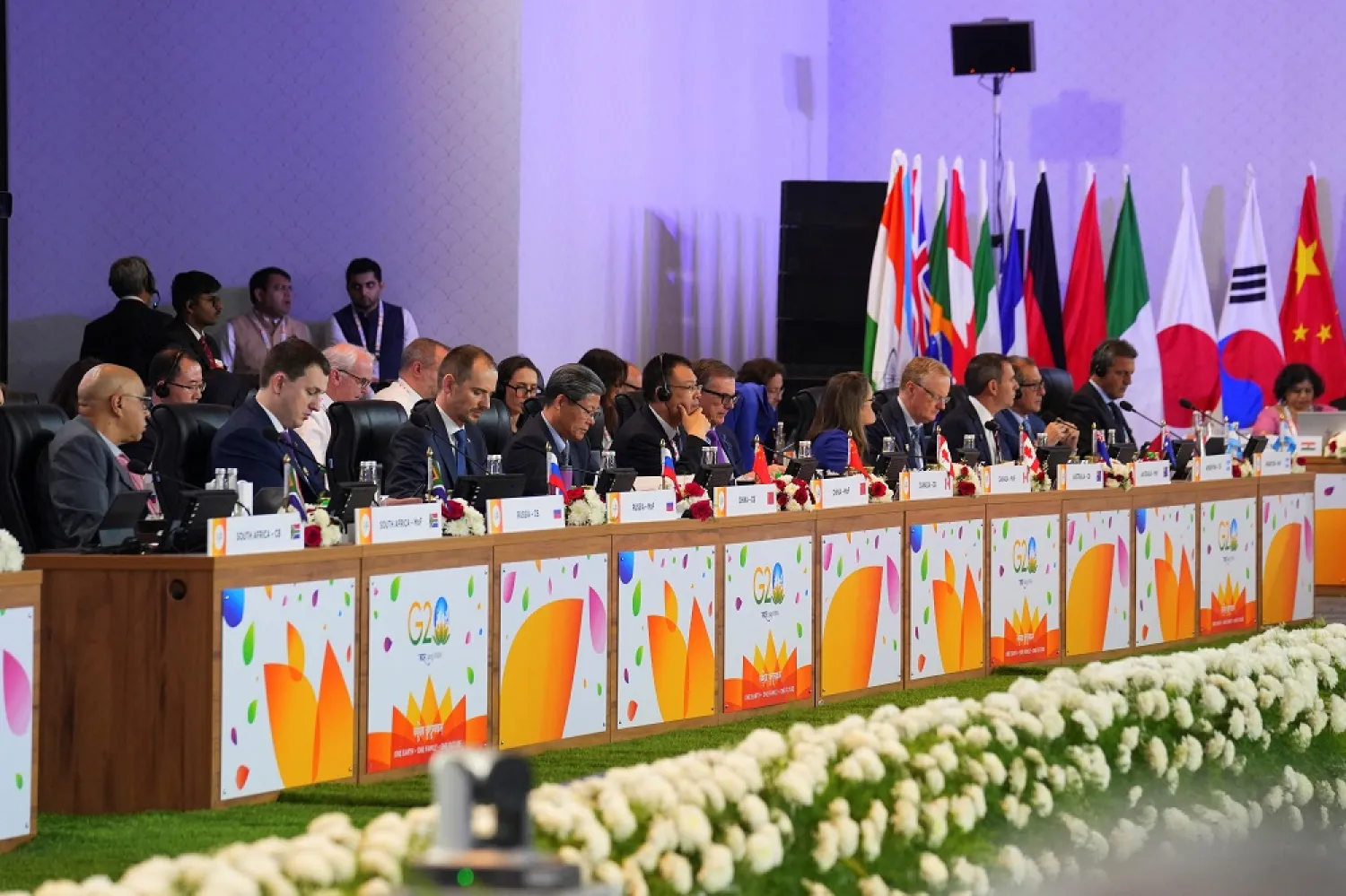G20 finance ministers failed Saturday to agree a joint statement on the global economy at talks in India, after China sought to water down references to the Ukraine war.
Instead, current G20 president India issued a "chair's summary" which said "most members strongly condemned the war in Ukraine" and that there were "different assessments of the situation and sanctions" at the two-day meeting in Bengaluru.
A footnote said two paragraphs in the summary about the war, which it said were adapted from the G20 Bali Leaders' Declaration in November, "were agreed to by all member countries except Russia and China".
Spain's representative Nadia Calvino had said earlier that because of "less constructive" approaches by some unspecified countries at the talks among the world's top 20 economies, agreeing on a statement was "difficult".
China wanted to change the language of the declaration from November, officials told AFP, with one saying on condition of anonymity that Beijing wished to remove the word "war".
Previous meetings of G20 finance ministers and central bank chiefs have also failed to produce a common communique since Russia, a member of the grouping, invaded its neighbor last February.
Senior Indian official Ajay Seth said the Chinese and Russian representatives did not want to sign up to the wording on Ukraine because "their mandate is to deal with economic and financial issues".
"On the other hand, all the other 18 countries felt that the war has got implications for the global economy" and needed to be mentioned, Seth told a closing news conference.
China has sought to position itself as neutral on the conflict while maintaining close ties with strategic ally Russia.
State news agency Xinhua quoted top diplomat Wang Yi on Wednesday as saying China was willing to "strengthen strategic coordination" with Russia after meeting President Vladimir Putin in Moscow.
On Friday, the first anniversary of the invasion, China published a 12-point paper calling for a "political settlement" to the crisis that was met with skepticism from Ukraine's allies.
G20 host India has also refused to condemn Russia, which is New Delhi's biggest arms supplier and has become a major source of oil for India since the invasion.
Western countries -- including the United States, Germany and France -- had insisted the language in any joint statement could not be weaker than the communique issued by G20 leaders in Indonesia in November.
"This is a war. And this war has a cause, has one cause, and that is Russia and Vladimir Putin. That must be expressed clearly at this G20 finance meeting," German Finance Minister Christian Lindner told a news conference on Friday.
Debt relief
India's summary document said the global economic outlook had "modestly improved", although overall growth remains "slow" and risks persist including elevated inflation, a resurgence of the pandemic and high debts in many poorer nations.
On climate change it stressed the importance of meeting "fully as soon as possible" the commitment made by developed countries to mobilize $100 billion in climate finance annually through 2025 for poorer countries.
The gathering also focused on debt relief for poorer countries hit by rocketing inflation because of the war, amid differences between China and the West on how to provide it.
Western officials want China to take "haircuts" on loans to debt-stricken nations but Beijing says multilateral lenders including the World Bank should also do so.
India's summary said that "strengthening multilateral coordination by official bilateral and private creditors" was needed. Delegates said agreeing this wording was a success.
"In Bali last summer we discussed for three days the wording of a communique and we didn't discuss substance at all there. We did this time," one negotiator said.
International Monetary Fund chief Kristalina Georgieva called it a "very good meeting", praising the Indian presidency for focusing "on the issues that really matter" such as inflation and debt.
Other topics included efforts towards a global tax on tech giants, widening the remit of multilateral development banks such as the World Bank to help nations hit by climate change, and cryptocurrencies.









